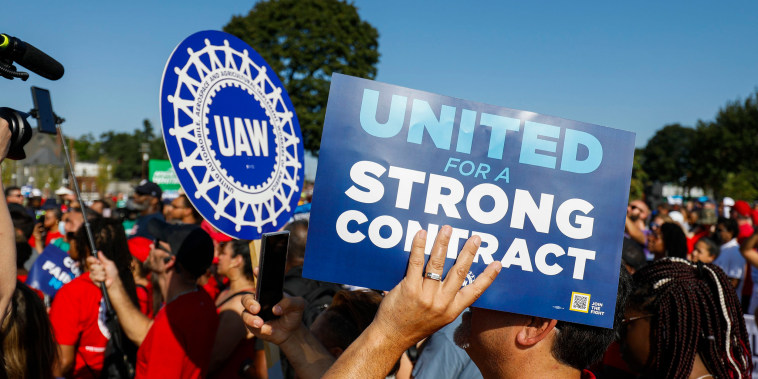The United Automobile Workers (UAW) union has been in negotiations with the Ford Motor Company, General Motors, and Fiat Chrysler Automobiles to negotiate a new set of contracts for its members. The union is seeking better wages, benefits, and working conditions for its members, as well as a larger share of the profits of the companies involved. If an agreement cannot be reached by the current deadline, which is 11:59 PM ET on September 14, 2020, the union has authorized its members to strike against the companies.
If a strike occurs, it would be the first labor strike against the automakers since the last one in 2007. All three automakers have made it clear that they would like to reach an agreement without a work stoppage, but have also indicated that they are prepared to face the possibility of a strike.
The most important issue at stake in the stalled negotiations is wages. At the center of the dispute is the UAW’s demand for a “fair share” of the automakers’ profits. The companies are resisting the union’s demands, arguing that wage increases for its members need to be balanced against the need to remain competitive in the global marketplace.
Other issues of contention include health care benefits, job security, and the increasingly contentious issue of how to divide laid off workers’ severance pay. The companies have indicated that they are prepared to increase wages and benefits, but are looking to do so in a way that will not put them at a competitive disadvantage in terms of labor costs.
In addition to the economic issues at stake in the negotiations, the UAW is also seeking new rules that will address how the companies will handle health and safety issues as well as the way they interact with part-time and temporary employees.
If a strike does occur, it is likely to be disruptive for the automakers. A prolonged strike could lead to supply chain disruptions, force the companies to idle their plants, and bring production to a halt. The effect of a strike would be felt not only on the automakers, but also on the many workers and businesses that rely on them.
